The most important aspect of any type of construction is the subsurface investigation, which is the first step in the design process. Here in the New York region, past geologic activity has produced an almost unrivaled diversity in geologic features and landforms, including nine different foundation rock types and dozens of different soil deposits. Each rock and soil type possesses its own engineering characteristics in addition to local variations within the formations. Adding to the natural geologic complexity, vast areas of reclaimed land exist along the region’s coastlines, and surface layers of soil and rubble backfill blanket former building sites upland of our coastlines. The New York City Building Code recognizes our geologic complexities and requires relatively robust subsurface investigations for design of appropriate and economical foundation systems. Development of the subsurface soil investigation program begins with a review of published local geological data and the results of literally thousands of previous investigations performed within the five boroughs and surrounding environs.
Subsurface investigations typically entail drilling exploratory soil borings to determine the soil, rock and groundwater conditions with depth and excavating test pits to further characterize the surface soils and identify neighboring foundation conditions. Samples from the investigations are delivered to our soil laboratory for evaluation and final classification. Representative samples are then selected for laboratory index and engineering properties testing. All laboratory testing is performed according to ASTM standards.
Finally, the investigation and laboratory test data is evaluated with respect to the proposed construction and prepared for inclusion in a comprehensive geotechnical investigation report along with a summary of our engineering evaluation and recommendations for new foundations and related earthworks.
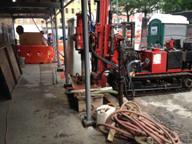 Small Sites |
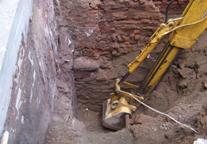 |
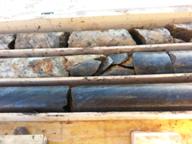 Evaluation |
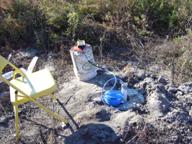 |
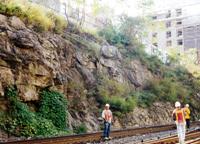 |
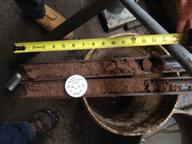 |

